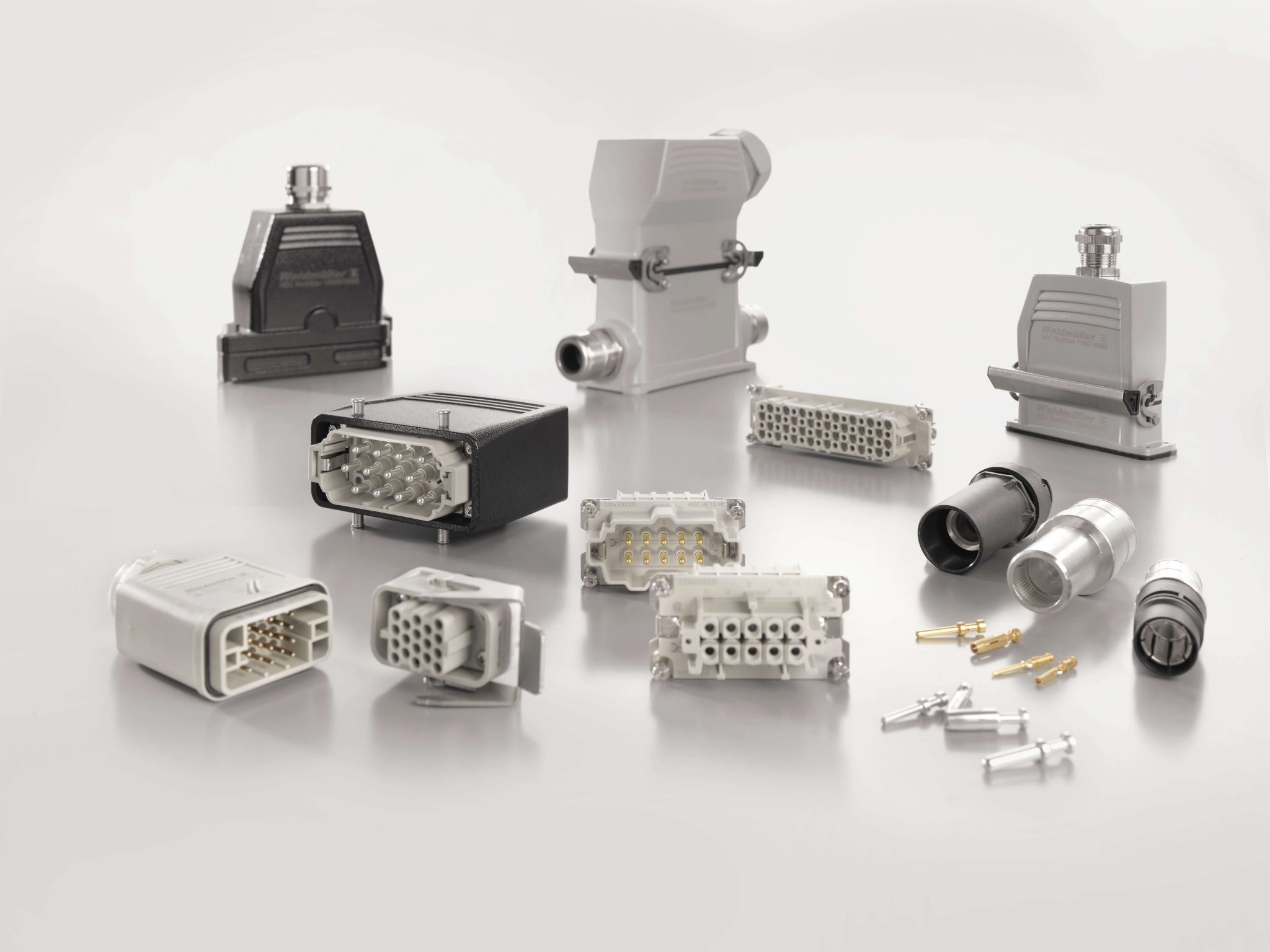- All
- Product Name
- Product Keyword
- Product Model
- Product Summary
- Product Description
- Multi Field Search
Views: 77 Author: Site Editor Publish Time: 2023-11-17 Origin: Site
Heavy duty connectors offer several benefits when used in industrial applications. Here are some of the main benefits:
Durability and reliability: Heavy duty connectors are designed to withstand harsh environments, extreme temperatures, and high vibrations. They have a robust construction that can resist impacts, dust, moisture, and chemicals, ensuring reliable performance over long periods.
Ease of installation and maintenance: Heavy duty connectors are easy to install and maintain, thanks to their modular design and tool-free locking mechanisms. They allow for quick and easy replacement of damaged or worn out components, reducing downtime and maintenance costs.
Safety: Heavy duty connectors have safety features such as locking mechanisms, polarizing keys, and grounding contacts that ensure proper and secure connection, preventing accidental disconnections or short circuits. This makes them suitable for high voltage and high current applications that require strict safety standards.
Flexibility: Heavy duty connectors come in a variety of sizes, contact configurations, and housing options, allowing for customization and flexibility in terms of power and signal requirements. They can be used for both power and signal transmission, making them suitable for a wide range of industrial applications.
Cost-effective: Heavy duty connectors offer cost savings in the long run due to their durability and reliability. They reduce downtime and maintenance costs, and can also reduce the need for costly cable and wiring infrastructure.
Compatibility: Heavy duty connectors are compatible with different types of cables, wires, and devices, making them suitable for retrofitting existing systems or upgrading to new technologies.
Environmental protection: Heavy duty connectors have a high degree of protection against environmental factors such as dust, water, and chemicals. This makes them suitable for industrial applications that require protection against harsh environments.

Heavy duty connectors offer several benefits when used in industrial applications. They are durable, reliable, easy to install and maintain, safe, flexible, cost-effective, compatible, and environmentally protected. These benefits make heavy duty connectors an essential component in various industrial applications, including transportation, automation, construction, renewable energy, and more. When selecting heavy duty connectors for a specific application, it is important to consider the operating conditions, power requirements, and the type of signal transmission required to ensure optimal performance and reliability.
Moreover, the benefits of using heavy duty connectors in industrial applications can be further explored in detail. For example, the durability and reliability of heavy duty connectors can reduce the need for frequent maintenance and repair. This is especially important in industries such as transportation and construction, where equipment downtime can be costly and disruptive. Heavy duty connectors can also withstand extreme temperatures and high levels of vibration, ensuring that they continue to operate efficiently in challenging environments.
The ease of installation and maintenance of heavy duty connectors can also lead to significant cost savings. The modular design of heavy duty connectors allows for easy replacement of damaged or worn out components, reducing the need for costly repairs or replacements. Additionally, the tool-free locking mechanisms of heavy duty connectors enable quick and easy installation, reducing labor costs and installation time.
Safety is also a critical consideration in industrial applications. Heavy duty connectors have safety features such as locking mechanisms, polarizing keys, and grounding contacts that ensure proper and secure connection, preventing accidental disconnections or short circuits. This is especially important in applications where high voltages and currents are involved, such as in renewable energy and electric vehicle charging stations.
Flexibility is another key benefit of heavy duty connectors. They come in a range of sizes, contact configurations, and housing options, allowing for customization and flexibility in terms of power and signal requirements. This makes heavy duty connectors suitable for a wide range of applications, including those requiring high-speed data transmission or complex control systems.
In conclusion, heavy duty connectors offer numerous benefits when used in industrial applications. They are durable, reliable, easy to install and maintain, safe, flexible,
A terminal block is a compact, insulated base with metal contacts that lets you clamp, join, and distribute conductors without soldering. If you’ve ever routed power to a drive, brought sensor leads into a controller, or handed off field wiring to a PCB, you’ve used one. Understanding what is a term
As a Engineer ,It is very important to choose globally recognized premium terminal blocks .these manufacturersas below: Phoenix Contact, WAGO, Weidmüller, Eaton, Molex, Amphenol, Harting, and Shanye Electronics (subsidiary of Kefa Electronics). These industry leaders collectively dominate the $4.6
This article covers the technical features of spring-loaded and push-in terminals, and both the advantages and disadvantages of these technologies when it comes to installation practices, commissioning, footprint and authorisation for the North American market. Why do we need spring terminal block ?
Wiring a terminal block correctly is a fundamental skill in electrical work, ensuring safe and reliable connections. This article will help you to understand the essential steps, from preparing your wires to securing them properly within various terminal block types.ContentWhat are Terminal Blocks?R
What is terminal block ?terminal block, also known as a connection terminal, is a modular block used in electrical and electronics systems to connect and secure electrical wires or cables. It serves as a convenient and organized way to make electrical connections, whether for power distribution, sig
Terminal electronics is the key point at which a conductor from a electronic component, device or network comes to an end.Terminal may also refer to an electrical connector at this endpoint, acting as the reusable interface to a conductor and creating a point where external circuits can be connected